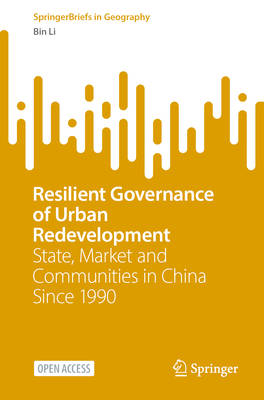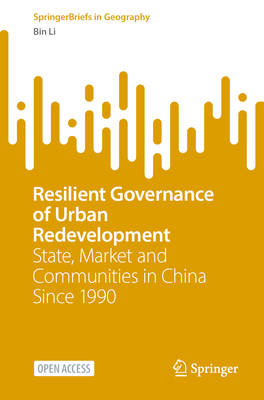
- Afhalen na 1 uur in een winkel met voorraad
- Gratis thuislevering in België vanaf € 30
- Ruim aanbod met 7 miljoen producten
- Afhalen na 1 uur in een winkel met voorraad
- Gratis thuislevering in België vanaf € 30
- Ruim aanbod met 7 miljoen producten
Resilient Governance of Urban Redevelopment
State, Market and Communities in China Since 1990
Bin LiOmschrijving
To examine the origins, characteristics, and outcomes of resilient governance with Chinese characteristics, this open access book takes Guangzhou, a typical Chinese city from 1990 to 2015, as an example. Through participant observation, semi-structured interviews, and the collection of secondary data, this book finds that (1) the institutional context can be described as an authoritarian land-oriented pro-growth regime; (2) there are three phases with different patterns of governance: the Primitive Market Phase (1990-1998), the Pure Government Phase (1998-2006) and the Multiple Players Phase (2006-2015); (3) redevelopment can serve as a model of resilient governance because it changes in time in a dynamic environment to maximise economic growth; (4) an authoritarian land-oriented pro-growth regime is the key to support such a resilient governance model.
This is an open access book.
Specificaties
Betrokkenen
- Auteur(s):
- Uitgeverij:
Inhoud
- Aantal bladzijden:
- 77
- Taal:
- Engels
- Reeks:
Eigenschappen
- Productcode (EAN):
- 9789819929276
- Verschijningsdatum:
- 31/07/2023
- Uitvoering:
- Paperback
- Formaat:
- Trade paperback (VS)
- Afmetingen:
- 156 mm x 234 mm
- Gewicht:
- 136 g

Alleen bij Standaard Boekhandel
Beoordelingen
We publiceren alleen reviews die voldoen aan de voorwaarden voor reviews. Bekijk onze voorwaarden voor reviews.











